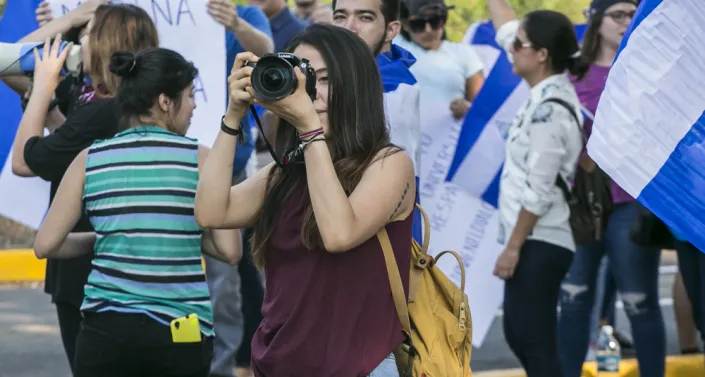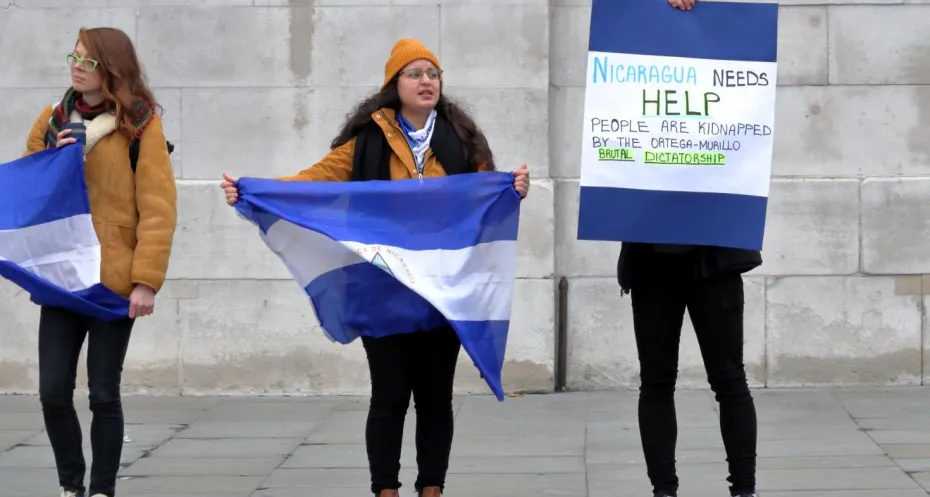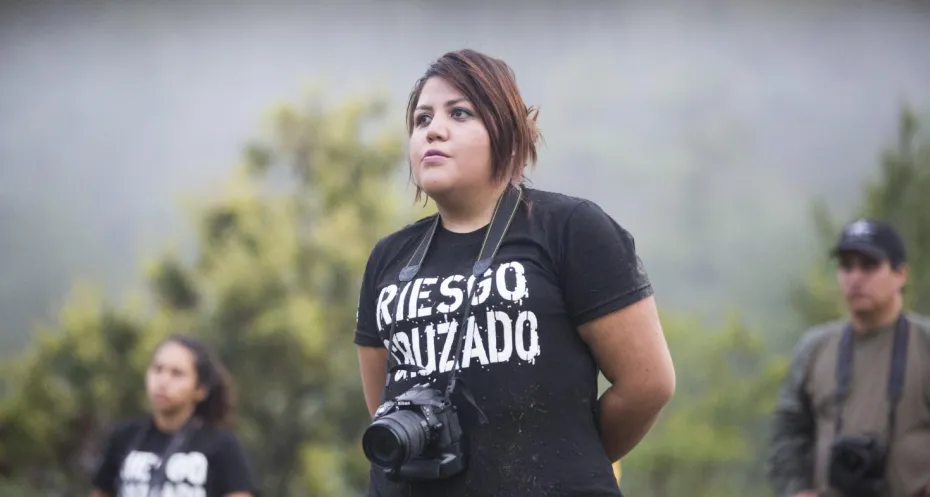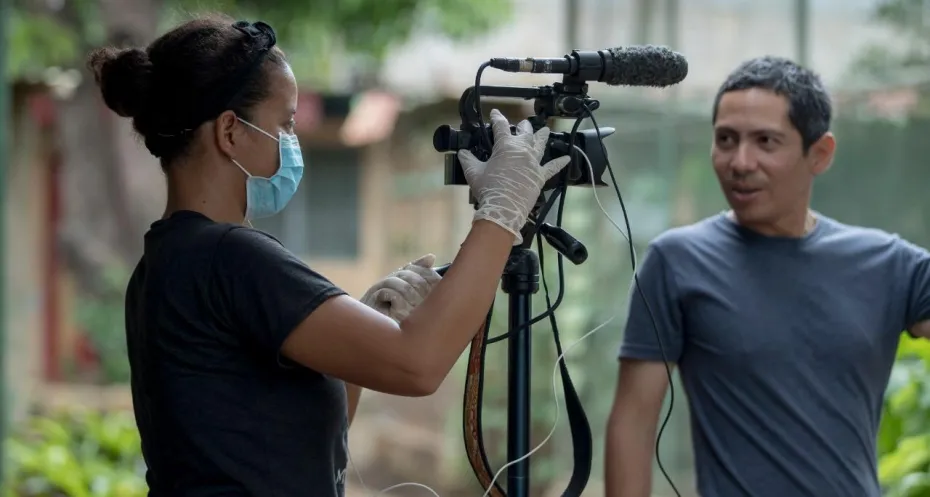
Nicaragua
Upon regaining power in 2007, the government of Daniel Ortega has systematically dismantled the country’s democratic institutions and Nicaraguan’s fundamental rights. In recent years, press freedom has greatly deteriorated: Ortega’s regime has arbitrarily imprisoned dozens of journalists, shut down at least 54 media outlets and forced more than 240 journalists and media workers into exile. Today there is not a single independent and critical newspaper, TV channel or radio station openly operating in the country. Nicaragua ranks 158 out of 180 countries on the RSF Press Freedom Index.
Silencing critical voices
The situation has deeply worsened since a social and political crisis shook the country in 2018. That year, tens of thousands of Nicaraguans took to the streets in several cities to protest against proposed social security reforms. Police and paramilitary forces brutally cracked down on mostly peaceful protesters. More than 300 people were killed, including journalist Angel Gahona, who’s killing was captured by national TV while reporting on the protests.
The State’s violence and repression quickly extended to people and institutions demanding accountability for human rights violations: journalists, human rights defenders, civil society organisations, universities and even the catholic church. In this wave of repression, more than 5,200 civil society groups have been arbitrarily shut down. In August 20th 2024, 1,500 NGO’s were shut down in a single day.
The State vs. press freedom
Repressive methods against journalists and media outlets include, but go beyond, surveillance, harassment and threats. Public institutions, like the police and courts are routinely instrumentalised to prosecute and arbitrarily imprison journalists and other critical voices. Laws like the “Special Cybercrimes Law”, the “Foreign Agent Law” and the “Law of Sovereignty” have created a legal minefield meant to suffocate civil society, curb freedom of expression and criminalize dissent. Since August 2023, journalist Víctor Ticay has been serving an eight year sentence for allegedly spreading “fake news” against the “sovereignty” of Nicaragua.
Confiscated newsrooms and nationality
The Ortega regime has confiscated the properties and assets of the most important independent media outlets in Nicaragua: La Prensa, Confidencial and 100% Noticias. The regime has has also unconstitutionally revoked the citizenship of hundreds of “dissidents”, including 13 journalists and media workers who were arbitrarily detained and wrongfully sentenced to an average of 10 years in prison. They remained imprisoned for almost two years, being released in early 2023 after being stripped off their Nicaraguan nationality and “banished” to the United States.
Chilling effect: self-censorship and access to information
The crackdown on independent journalists and media support organisations, the censorship and confiscation of media outlets, the forced closure of journalism schools and the generalised environment of violence, repression and impunity has had a ripple effect. A pervasive fear of retribution has led to widespread self-censorship. Nicaraguans, both online and offline, are afraid to express critical views for fear of government reprisal. This stifles public discourse and undermines democratic processes even further. The situation also makes it tremendously difficult to report on human rights abuses and hold the government accountable. This lack of transparency creates an environment where violations continue to occur unchecked. Furthermore, this closed media landscape restricts access to diverse viewpoints and information, undermining Nicaraguans’ capacities to make informed decisions.
The role of the international community
Nicaraguan journalists and media are not alone. The Organization of American States, the European Union and the United Nations have all strongly condemned Ortega’s actions and demanded an end to the repression in Nicaragua. But to continue to report in such an environment, Nicaraguan journalists need access to funding opportunities, safety trainings and legal support, among other resources and tools. Free Press Unlimited provides emergency support to Nicaraguan journalists in distress.



